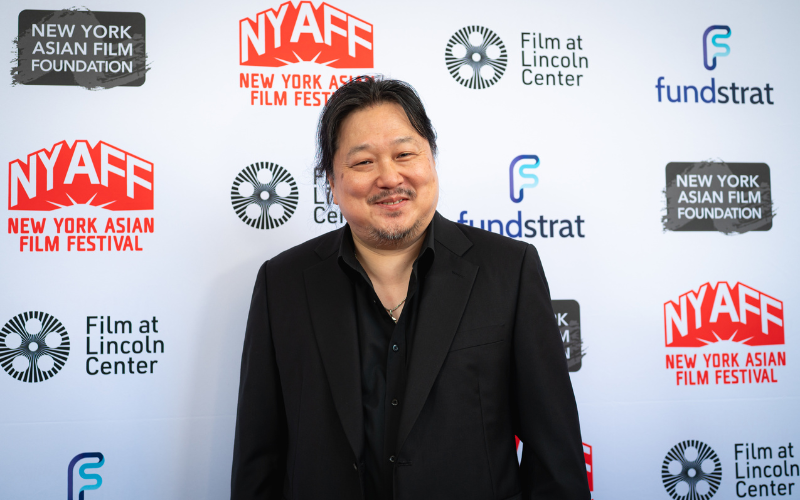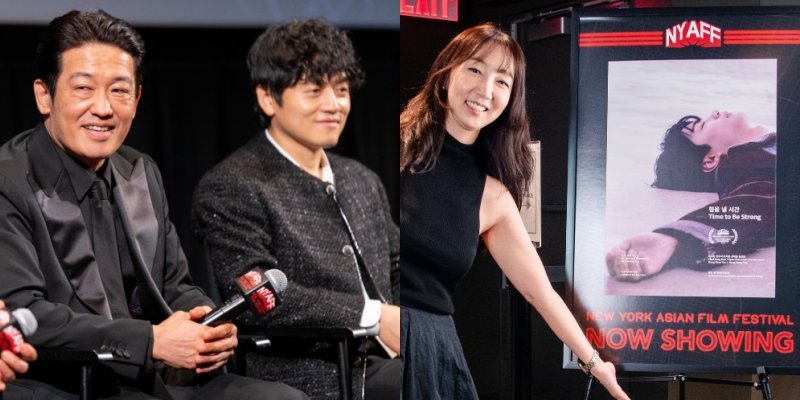- 한국어
- English
- 日本語
- 中文
- العربية
- Español
- Français
- Deutsch
- Pусский
- Tiếng Việt
- Indonesian
By Honorary Reporter Talita Franca from Brazil
Photos = NYAFF
This year's New York Asian Film Festival was held from July 11-27, screening over 70 works under the theme "Cinema as Disruption" with support from the Korean Cultural Center (KCC) in New York and the Korean Film Council.

Festival president and executive director Samuel Jamier poses for a photo at the event.
The following are excerpts from an email interview from July 24-31 with Samuel Jamier, president and executive director of the festival and its foundation who was born in Korea but adopted by a French couple as a child. He previously worked at the cultural services of the French Embassy in the U.S. and the Korea Society and the Japan Society in New York.
What is your assessment of the Korean works at this year's festival?
Korean cinema held a strong presence with 24 titles across four venues including the world premiere of "Informant" (2025), an action comedy directed by Kim Seok and starring Heo Sung-tae, known for his role in "Squid Game." "Time to Be Strong" (2024), directed by Sun Namkoong, was nominated for the Uncaged (Best Feature) Award, which recognizes emerging directors with strong authorial voices.

Actors Heo Sung-tae (left) and Jo Bok-rae (second from left) from "Informant" speak at the festival's opening, while director Sun Namkoong stands next to a poster for her film "Time to Be Strong" (2025).
Aligned with our 2025 theme "Cinema as Disruption," we sought films that challenge norms and push boundaries. From "Forbidden Fairytales" (2025), which takes a bold look at Korea's digital erotica industry, to "Horoomon" (2025), which paints a portrait of the identity of jaeil gyopo (ethnic Korean residents of Japan), the lineup amplified taboo topics, marginalized voices and genre-blending stories. We were particularly drawn to debut directors who brought fresh perspectives on society, gender, trauma and justice.
How has the public response to Korean cinema changed at the event over time?
The transformation has been remarkable. Korean films have evolved from being driven by curiosity to becoming cornerstone attractions. Today's audiences arrive more knowledgeable in recognizing directors' previous works, understanding cultural contexts and engaging in sophisticated discussions during Q&As.
Any new initiatives, sections or collaborations planned?
I've been thinking of developing industry-focused labs -- possibly even a market -- pairing Korean creators with international producers, recognizing the need for structured collaboration. We've always had a dedicated spotlight on emerging Korean women directors, but I think we could go further in addressing representation gaps.
We're also exploring expanded partnerships with the KCC in New York, Korean Film Council and cultural foundations to provide year-round programming, from retrospectives of overlooked masters to thematic series tracing the evolution of Korean cinema.
From your perspective, what makes Korean cinema stand out?
Korean cinema achieves a rare balance of emotional intensity, stylistic innovation and cultural specificity that remains universally resonant. Its bold genre blending, social commentary and trust in audiences have fueled global success, and even amid industry challenges, its creative ambition remains undiminished.
msjeon22@korea.kr
*This article is written by a Korea.net Honorary Reporter. Our group of Honorary Reporters are from all around the world, and they share with Korea.net their love and passion for all things Korean.